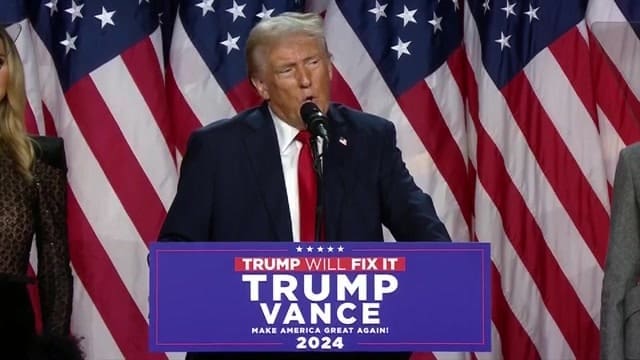In a dramatic turn of events, the House has rejected a Trump-supported proposal aimed at averting an imminent government shutdown, creating uncertainty on how lawmakers will proceed.
Late Thursday evening, the House, with tensions running high, dismissed President-elect Donald Trump’s freshly proposed plan to maintain federal operations and raise the debt ceiling, just ahead of the deadline to avoid a government shutdown. Despite Republican leaders’ quick assembly of the proposal, it failed to secure the required two-thirds majority, closing with a vote of 174-235. This development marks a significant hurdle for Trump and his influential ally, Elon Musk, who opposed the earlier bipartisan agreement designed to prevent a holiday shutdown.
House Speaker Mike Johnson, who remains resilient, is considering reconvening before the shutdown deadline. Ahead of the vote, Johnson expressed confidence, stating, “We’re going to do the right thing here.” Nevertheless, the setback leaves the legislative path forward ambiguous, especially as Trump, during his previous term, led a historically lengthy shutdown over the 2018 Christmas season.
Trump announced earlier in the day that the new plan had been a ‘success,’ boasting it would extend government operations for an additional three months, increase disaster relief funding, and expand borrowing capabilities until January 30, 2027. However, resistance from Democrats was swift, with House Democratic Leader Hakeem Jeffries dismissing the proposition as “laughable” and maintaining support for the previous bipartisan deal with Johnson.
The new plan was drastically shortened from 1,500 pages to 116, scrapping numerous unrelated provisions, including a highly criticized proposed pay raise for lawmakers. As discussions intensified, Johnson faced the challenge of meeting Trump’s unexpected requirements while maintaining his position, all while federal agencies braced for potential shutdown protocols.
The debate grew heated within the chamber, with accusations flying across party lines. Republicans, under significant pressure from Trump and Musk’s social media influence, encountered fierce Democratic opposition. Lawmakers like Rep. Chip Roy of Texas openly criticized their colleagues for contributing to national debt, illustrating the internal Republican discord.
The revised proposal managed to retain federal funding for projects such as rebuilding Baltimore’s Key Bridge but abandoned several other bipartisan initiatives. The addition of raising the debt ceiling served as a contentious issue, further complicating bipartisan efforts.
Additionally, the White House’s budget office had already begun alerting federal agencies about possible shutdown procedures. With federal funding set to expire imminently, the lack of resolution accentuates the ongoing friction in Congress, especially as it prepares for the transition to a Trump-led administration with Republican majorities in both chambers.
The House’s rejection of the Trump-backed funding proposal underscores the ongoing legislative challenges as the deadline for a government shutdown looms. As political divisions deepen, the path forward remains uncertain, highlighting the complexities of governance under evolving political dynamics.
Source: Wsvn








